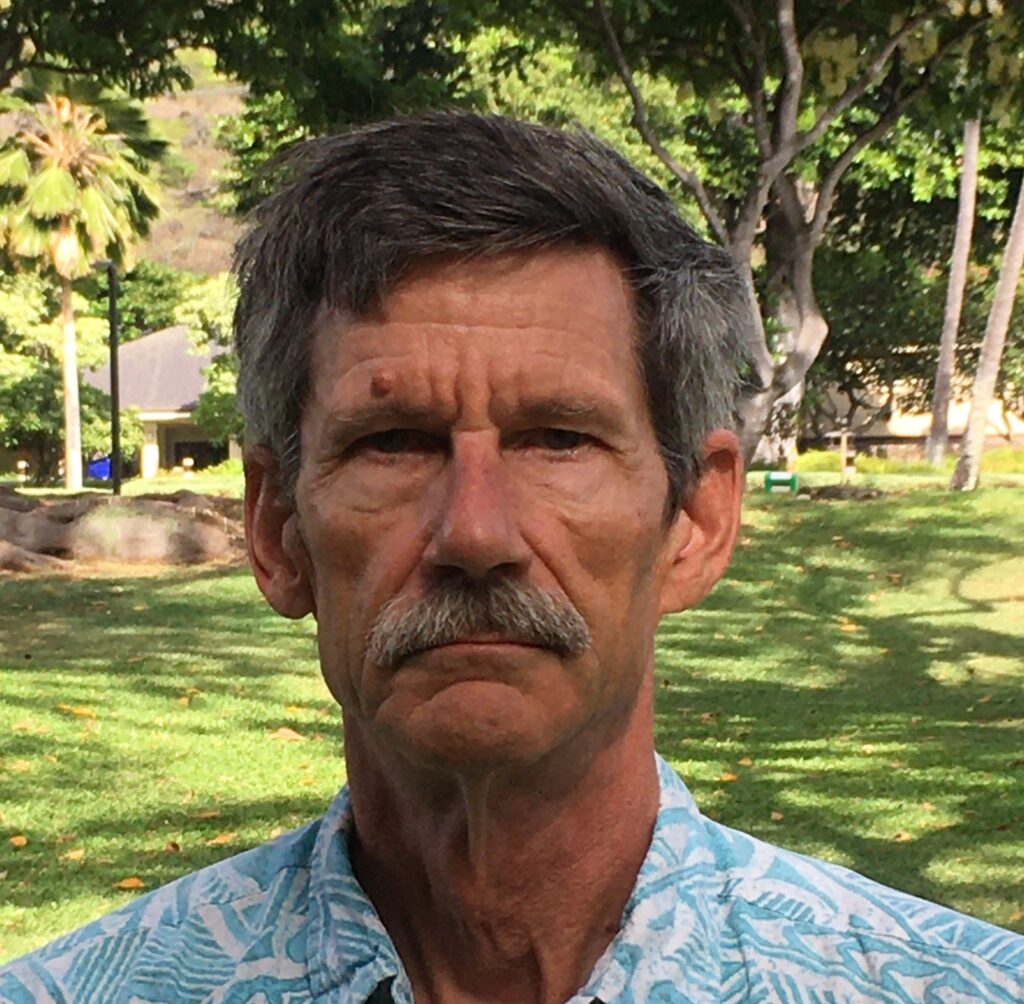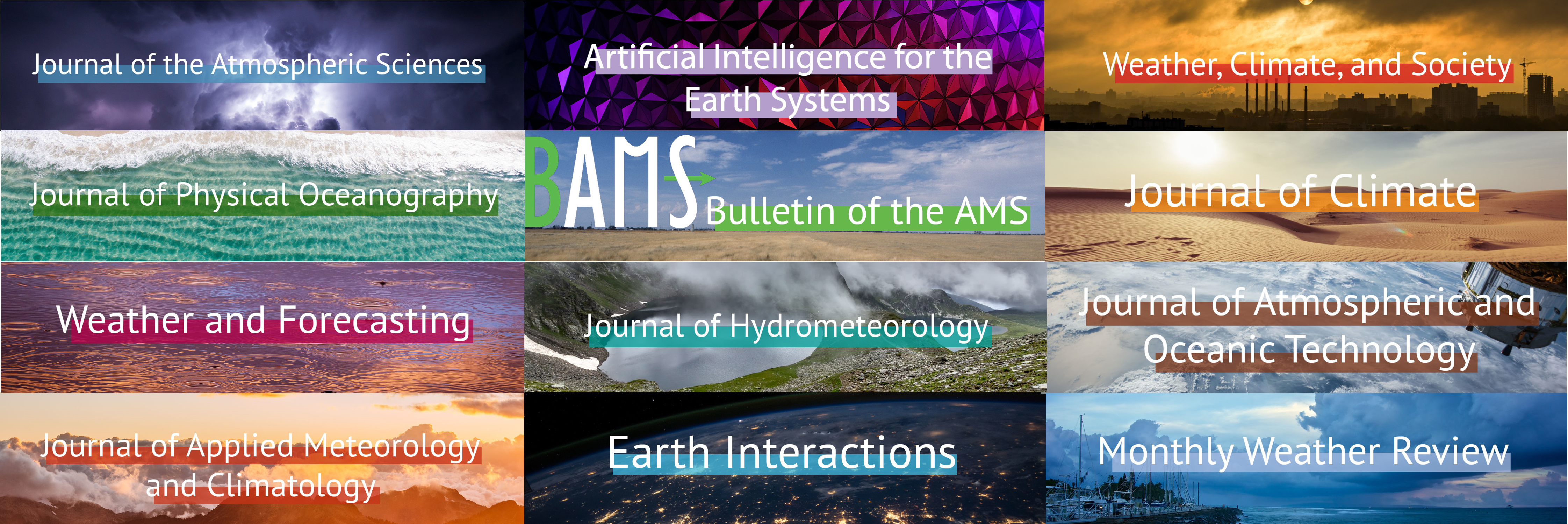In support of its mission to advance science for the benefit of society, the American Meteorological Society publishes 12 peer-reviewed, highly regarded scientific journals. Over four thousand individual volunteer reviewers contribute reviews to AMS journals every year.
Peer reviewers are subject-matter experts who volunteer their time both to advise journal editors on the suitability of a manuscript for publication and to provide guidance to authors in improving the accuracy and readability of their study. Peer reviewers’ careful evaluation of manuscripts is essential to scientific communication.
During Peer Review Week each September AMS highlights recipients of the AMS Editor’s Award, which is given for excellence in reviewing. AMS reviewers almost always do their work anonymously, so the Editor’s Award and Peer Review Week are rare opportunities to thank at least some reviewers by name, and give them an opportunity to share their thoughts on this essential but unsung task.
For more about peer review in AMS publications, check out Peer Review Week 2024!
Why is peer review important?

“Peer review is not infallible, especially at the level of each individual paper, but it is an important mechanism for steering science in the long run towards better descriptions of how the world works.”
-Eric Firing, University of Hawaiʻi at Mānoa

“[As a researcher] It’s often harder to explain what you’ve done than to do it in the first place. It’s easy to develop your own vocabulary for a problem that’s opaque to outside readers. A good reviewer will point out where my arguments are unclear and sometimes even help me clarify them. In the process, this often helps clarify my own thinking on the problem.”
-Christopher Pitt Wolfe, Stony Brook University
What keeps you motivated to review?
“I learn something from nearly every manuscript I review … One advantage of being a reviewer is to have the opportunity to read a manuscript that has not been published yet.”
-Lili Lei, Nanjing University, China

“In doing peer reviews, I have learned about new topics, methodologies, and trends in the field.”
-Will Cheng, National Center for Atmospheric Research (NCAR)

“From both the perspective of a reviewer and an author, the review process often provides new angles of how your studies are comprehended by people whose expertise is different from yours. I find that both annoying (of course!) and enlightening.”
-Yunji Zhang, The Pennsylvania State University

“I’ve learned a lot of science from reviewing. Often, you have to read up on concepts that you don’t know well enough. Or you try to reproduce some results and, in the process, find something interesting.”
-Ingo Richter, Japan Agency for Marine-Earth Science and Technology (JAMSTEC)

How do you approach the task of reviewing?

“It takes a lot of time to get research published. Reviewers are volunteers that take time out of their own work and lives to provide constructive feedback for people they may not know. It is a thankless job most of the time. Also, we don’t make up the rules as we go. We have standards and following those standards helps maintain objectivity and push the collective understanding of a given topic. Patience and understanding are key. It takes effort to provide a constructive and thorough review.”
-Stephen Strader, Villanova University

“Be purposefully constructive. The AMS provides great reviewer instructions. When following those instructions and drafting comments, I remind myself that my comments should serve the journal, the scientific enterprise, and the authors. I find it straightforward to focus on the first two, but the last is hard to deliver without some purposeful thinking. In practice, the outcome can too easily be comments that are excessively harsh or too generic to be helpful for authors. Thoughtful reviews can make a difference, especially for an early-career researcher. For example, reviewers offered specific suggestions that helped me improve my writing and research. By correcting my rookie mistakes early, those reviewers also spared the reviewers of my later studies some headaches. This is the power of being purposefully constructive.”
-Gan Zhang, University of Illinois at Urbana-Champaign

“The most important thing to keep in mind when reviewing a manuscript is to provide unbiased, objective, and constructive feedback to the authors. It is important to ensure that the methods/science is sound, which can be done by providing constructive comments and suggestions that the authors can use to improve the quality and robustness of their work.”
-Noah Samuel Brauer, NOAA/NWS Weather Prediction Center

“A paper should contribute to the current understanding of the topic. This could be a new discovery, a support or challenge of existing knowledge, or insights that can stimulate discussion in the community. As a reviewer, these are the aspects I focus on. However, it’s important to remember that reviewers are only the first judges of the paper — ultimately, readers will also assess it (and the reviewers’ judgment).”
-Young-Ha Kim, Seoul National University

“Everything should make sense in detail. If something doesn’t make sense, it could be wrong or simply not explained well (usually the latter). There should be enough information that a reader reasonably familiar with the field could reproduce the results (or at least the analysis) given sufficient time and resources.”
-Christopher Pitt Wolfe, Stony Brook University

“Whenever I review a manuscript, I try to make sure that it is pedagogical. That is, I want to make sure that if an early stage graduate student were to read it, they would be able to understand the background and gaps in the literature and follow the methodology. When I approach peer review through this lens, it helps identify areas that may be unclear to readers who are not experts in the specific subtopic, and overall improve the flow of the narrative.”
-Varvara Zemskova, University of Waterloo, Canada

“Advice I was given at some point (can’t remember from who) is that most manuscripts will get accepted somewhere. Thus, it is your job as a reviewer to help the authors get the manuscript accepted at the submitted journal if at all possible. This attitude has helped me feel aligned with the authors, rather than a gatekeeper.”
-Nathan Lenssen, Colorado School of Mines and NSF National Center for Atmospheric Research
What has reviewing taught you about the scientific process?
“Peer review may sound like a dry, boring, non-stimulating activity. But in reality, peer review requires creative and critical thinking, and often I learn new facts about topics related to atmospheric science and/or am exposed to new ways of thinking about subjects I already know a lot about. Performing peer review has expanded my worldview and helped me develop the skill of examining issues from perspectives not native to my own history.”
-Jeffrey Duda, Cooperative Institute for Research in Environmental Science, Earth System Research Lab

“To borrow from something I heard recently from a grade-school science teacher, it’s important to understand that science is never finished. Even if a study has been rigorously evaluated through peer review, in the future new data, methods, or interpretations could lead to a different set of conclusions. That being said, we can still take actions in response to the best information we have available, especially if the same conclusions have been found by multiple studies examining a question from many different angles.”
-Patrick Alexander, Columbia University

